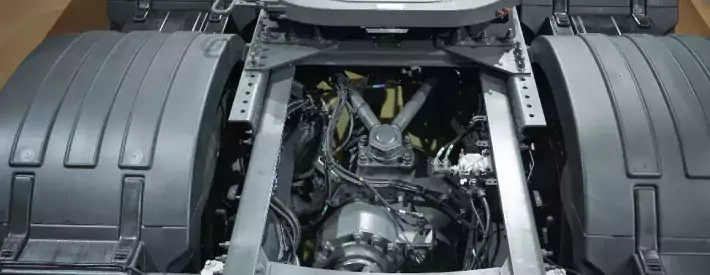Test fees: free market competition or monopoly?

MOT expert Paul Charlwood gives his opinion on MOT charging and how the HGV system could change for the better
The MOT Test fee hasn’t increased since April 2010 and DVSA have stated it isn’t in the public’s interest to increase the fee. They won’t mandate a minimum test fee either. However, DVSA consulted with its customers about rising its fees.
The executive agency said: “If our fees stay at their present levels, we will not be able to continue to provide services to their current standards. For example, driving test waiting times may rise.
We may also be unable to continue enforcement activity at present levels. This would reduce the chance of dangerous operators being detected, and increase the possibility of serious accidents.”
It’s good to see that DVSA have linked standards to price and road safety; it’s something professionals in the motor trade have known and wanted for years. For a Class 4 test, the maximum fee you can charge is £54.85. From that DVSA has a slot fee of £2.05, which it says will rise to £2.08. Not much, on the face of it, but actually, you’ve suffered an erosion of your services from DVSA for years.
The real slot fee increases
DVSA used to provide much more for the slot fee. A five year refresher course, of two days duration for each tester in the country. A computer and printer, printer ribbons and even stationary. MOT Tester and MOT Managers AEDM training was free of charge. DVSA has passed all these costs onto you, but you are not able to pass these increases on to your customers.
I understand that the Department for Transport and DVSA see the fact that the number of MOT stations increasing each year, coupled with competition means that the consumers have a good range of choice. Free market competition is a wonderful thing. Until its DVSA doing the test.
Getting heavy
If you own a heavy vehicle, then you have DVSA testing your truck at an Authorised Test Facility. Then the test fee is mandated – that’s because its right and proper that the high standard of the test is upheld. No discounting for the customer then, nor any choice.
Many years ago, price maintenance was actively pursued, and tyre manufacturers took tyre dealers to court for failing to maintain set prices. That practice was thankfully outlawed, and I think you will agree the consumer reaped the benefit of free market competition.
DVSA though is a government agency, and has a monopoly of the heavy goods and public service vehicle (PSV) testing market. Why is this and does it fit in with the UK Governments vision for the future?
We could and should have competition. After all, you can have your truck maintained 364 days of the year by the garage of your choice – any main dealer or an independent. DVSA has no need to test the trucks that are out there. Trucks could be tested in the same way as cars, in the private sector.
Stopping fraudulent MOTs
This week, an owner of an MOT garage brought to my attention that a number of Testers were openly advertising “ghost” MOTs on a social media platform. They were offering a VT20 for £100 and needed only the VRN, last six digits of the VIN and mileage. I of course submitted this intel to DVSA, but I’m sure most of you will know of a corrupt garage or tester who issues dodgy MOTs. Obviously, a greater risk to road safety would exist if a heavy vehicle received such a “test”.
So, how would standards be maintained? That’s quite easy. At the moment DVSA can only reinspect a recently tested car if they catch it in the MOT Test Station, or the customer asks DVSA to reinspect – usually at an appeal.
But with HGV and PSV, DVSA have the right to stop these vehicles out on the road, and have both fixed and static inspection sites for the purpose of roadside examinations. They also have powers to make unannounced visits to heavy vehicle operators and inspect vehicles and records. In addition to this, DVSA could still visit MOT stations as they do in the car and light goods world.
What’s the advantage?
Instead of a Civil Servant travelling to an authorised testing facility in order to test trucks and busses in a private garage, the Tester would be employed directly by the garage.
Also, it would expose the risk, which is hidden at the moment of cheap testing. I can see unease within DVSA and the Department for Transport when they find out that eight legger tippers are being tested for £30 in a poor-quality garage. What could they do? Well, my suggestion is that they could set a legal minimum fee and a maximum.
DVSA and the Department for Transport shouldn’t have this both ways. Either competition is a free for all, without constraints of price maintenance and a good thing, or, competition is bad and needs to be stopped, and a monopoly is needed. DVSA are part of the Civil Service, and I don’t see why they are engaged in every day business activities such as vehicle testing.
If test fees can’t have a minimum, then more ruthless enforcement of dodgy MOT stations will automatically increase the quality of the test, in turn making it much harder to run a dodgy garage, as you would need do a proper test in order to keep your licence. I suggest a better use of DVSA’s time is to spend money on enforcement, not HGV and PSV testing. Again, if it’s uncomfortable with the thought of an eight legger tipper getting a quick £30 test, then should it not also be worried about a high performance boy racer’s car getting a quick £30 test too.




